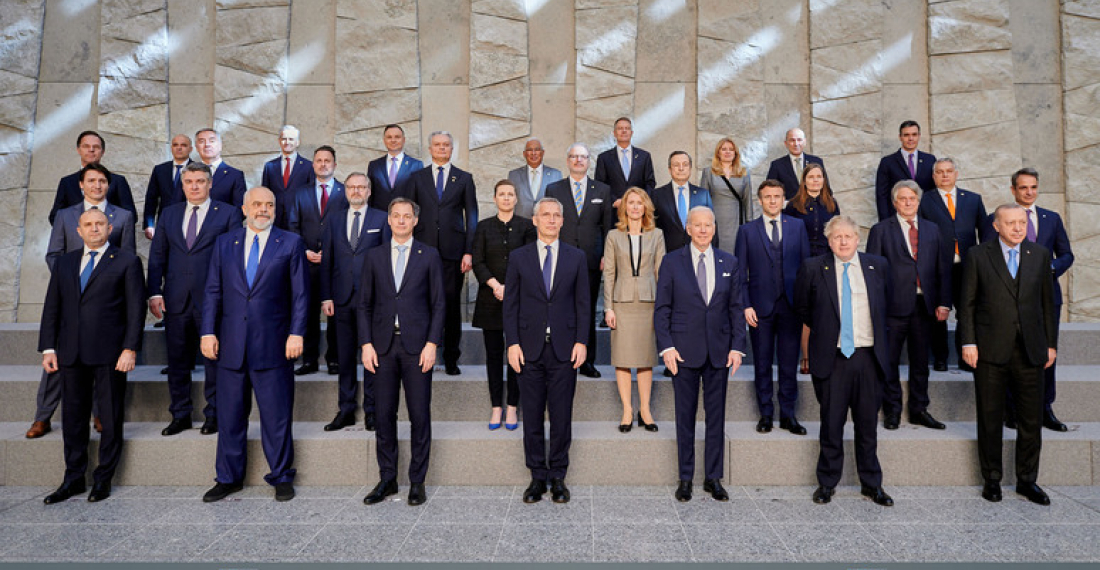Summit meetings of leaders of states take place with great regularity these days. They are often well choreographed set piece affairs, where most things are agreed in advance. The leaders fly in to iron out the last point or two, and take the traditional "family photo".
In Brussels on Thursday (24 March) not one, but three summits were held back to back: the summit of the leaders of the 30 member countries of NATO, a G7 summit with the leaders of some of the world's largest economies, and the European Council, bringing together the 27 member states of the EU. In all of them there was only one item on the agenda - Ukraine.
One month after Mr Putin launched an unprovoked war against Russia's neighbour Ukraine, despite being warned of the serious consequences if he did that, the leaders attending the summits in Brussels had one important message: Mr Putin, we will not let you get away with this. We are united in making sure that your aggression against Ukraine fails.
It cannot be otherwise. If Putin destroys the Ukrainian state, and the rest of the world does nothing, then we will be back to the dark days of the 1930s. No country or society in the world will be able to feel safe again.
The unified position of NATO, EU and G7 sends a strong signal that this will not be the case. The resolve of these countries in standing together on Ukraine will be tested in the coming days and weeks, but the three summits have shown that the resolve is deeply entrenched, and that whilst divergence on details may be expected, everyone is united around the core message.
Given that the crisis is taking place on the European continent it is natural that NATO and the EU should be taking the lead. But Putin's aggression is a global challenge. Most other countries in the world have joined in the condemnation. As recently as this week, in another vote in the UN General Assembly, only four countries supported Putin's Russia: Belarus, North Korea, Syria and Eritrea. These countries are already pariah's in the international system, and their vote indicates they will likely be in this status for a long time to come.
But the there are also around thirty other countries who have been sitting on the side-line in the current crisis. They include China and India. These two countries must bear in mind that Europe will remember their indifference for a long time to come.
China's position was somehow to be expected, since its approach has for some time now, been to weaken the west, and to use Russia as a tool in this process. In due course China may also see the error of its strategy.
India's position is more ambiguous. This glorious country of Gandhi and Nehru, a long time champion of the causes of small countries when threatened by bigger ones, now sits on the side whilst Mr Putin tries to dismember Ukraine. India, its government and people, need to be sure they are on the right side of history, or risk losing all the moral authority that had been accumulated over decades of anti colonial struggle, and support for the rights of nations.
The will of the international community has been tested by the crisis in Ukraine as it has not been since World War II. The leaders at the three summits in Brussels this week have shown they are ready to rise to the occasion. Others must follow.
source: Dennis Sammut is the Director of LINKS Europe and Managing Editor of commonspace.eu
photo: NATO leaders pose for the traditional family photo after their summit in Brussels on 24 March 2022 (picture courtesy of the NATO press office)






